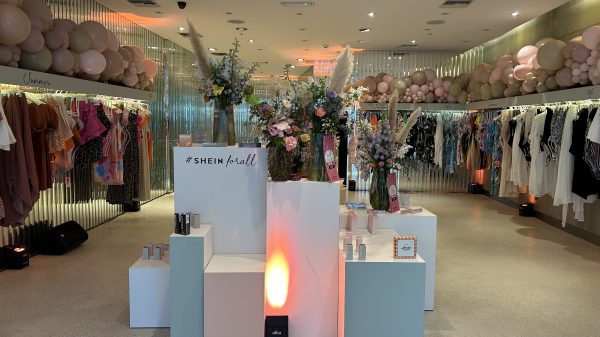Everyone knows the biggest shopping frenzy on the planet takes place not in December but on November 11 each year, uniting hundreds of millions of Chinese consumers in a spending spree that sets new, headline-grabbing records every year.
In fact, in China, there’s a near-non-stop rota of shopping festivals that the country’s 700 million connected consumers just can’t get enough of.
But what you might not know is that 11/11, sometimes known as “Singles Day”, isn’t the only game in town when it comes to getting vast numbers of Chinese shoppers to spend.
The modern Chinese calendar is now peppered with shopping festivals. Children’s Day, Women’s Day, Men’s Festival, a festival for electronics, a festival for wine, a giant summer festival to rival 11/11, and three festivals a year for lovers. The list goes on.
For consumers, making the most of each event is a serious business, and many start planning and saving for the next festival almost as soon as one is over.
Demand for foreign brands is more intense than ever, heightened by COVID-related restrictions on international travel, a seemingly insatiable appetite for all things new, and an enduring belief that many international brands tend to be higher quality and offer a touch of glamour that most domestic alternatives do not.
This, and the fact that internet penetration and, with it, e-commerce, is still growing, means China’s shopping festivals represent a huge opportunity for brands large and small; everything from luxury jewellery and high fashion, to vacuum cleaners and vitamins.
Ancient origins, new traditions
The rise of shopping festivals, which are mostly fairly recent inventions by forward-thinking e-commerce giants such as Alibaba, has been made possible by some very modern phenomena.
Mobile connectivity, hyper-fast logistics, and super apps that handle everything from promotions, content sharing and browsing to frictionless payment.
But the festivals are built on a tradition that dates back centuries. “Ganji” or market days would see travelling traders stop in different villages on specific days of the month; residents looked forward to ganji not just as an opportunity to buy essential goods, but also to join a social celebration. A festival.
Bargains are just the beginning
Shopping festivals today are intense, exciting and often frantic experiences for consumers in which huge volumes of goods and services are traded, often at special prices, or with limited-edition gifts or bundles, and all in a race against the clock.
But, just like “ganji”, they’re also as much about entertainment and discovery as they are about getting a bargain.
The early 11/11 festivals (by early, we mean 5-10 years ago) were all about the discounts; a way for brands and retailers to shift huge amounts of inventory, much of it stock at the end of its life.
Today, there is still a role for the too-good-to-ignore discount, but for brands, the reasons to be part of a shopping festival have shifted quite dramatically.
READ MORE: Alibaba hails runaway success during first half of ‘Singles Day’ shopping festival
Smart brands have come to regard festivals as times to create excitement and engagement, often in innovative ways.
New product launches, exclusives, limited-editions and new packaging formats are some of today’s highly effective tools for brands at shopping festivals.
Many brands are now creating new products specifically for Chinese festivals – everything from snacks to power drills, mouthwash to personal computers.
Even luxury brands, initially reluctant to be associated with discount-focused events, are now joining shopping festivals in big numbers, emphasising exclusivity, VIP rewards, personalisation and customisation.
From watches to chocolates, many brands are selling their newest, most exclusive, and highest-priced goods via festivals.
All the fun of the fair
The excitement around festivals is not just about what people can buy, however. Entertainment is now a huge part of the appeal, making shopping a fun, social activity.
Alibaba sets the gold standard, with its annual 11//11 live, televised and livestreamed gala event packed with celebrities, shows and games to play along with via mobile.
Sporting superstars, Katy Perry, the Beckhams, and Taylor Swift have all been part of the action.
Gamification is one popular way of creating engagement; some games might involve working as a team with friends to earn discounts or gifts, while others provide rewards for browsing a certain store, or watching a demonstration video.
Estee Lauder and Mazda are among major brands building gamification into their festival experiences.
But the real jewel in the crown of content creation right now is livestreaming, featuring everyone from A-listers and micro-influencers, to store assistants and farmers.
Already on the rise, livestreaming has soared as a result of the pandemic as consumers look for new ways of interacting with people remotely. Sales via livestreams were worth around RMB 112 billion (£12 billion) last year in China.
Time to join the party
China’s shopping festivals cannot be ignored. Deciding not to join in is like opting out of the Christmas season in the West, although the lost opportunity is potentially much bigger.
Even tiny brands, with the right combination of content and marketing investment, can gain visibility and sales during these mega shopping events. And being from outside China can be a definite plus, particularly in categories that are health or family-related.
Of course, it’s also easy to get caught up in the sales frenzy of festivals, offering amazing promotions, but losing track of margins – and profits.
That’s why WPP, in collaboration with Alibaba, has created a comprehensive guide to China’s shopping festivals.
“Dates With Destiny – How Brands Can Win Consumers and Sales at China’s Lucrative Shopping Festivals” is a companion for brands on how to succeed – not just on the day of a festival, but longer term.
It features insight from brands on their own festival experiences: Vitabiotics, Allbirds, Supergoop, Bissell, SmoothSkin and Christofle are among them. There’s expertise from Alibaba’s international team, and the just-launched WPP BAV ranking of China’s Most Captivating Retail Brands, both local and international.
There’s also a complete guide to livestreaming, and 11 Top Takeaways for those in a hurry.
And there’s plenty of reason to hurry: China’s Women’s Day festival is only a week or so away, there’s a major electronics event in April, and four other shopping festivals in May alone.
It’s beginning to look at lot like Christmas…
David Roth, CEO, The Store, WPP
Click here to sign up to Charged‘s free daily email newsletter










